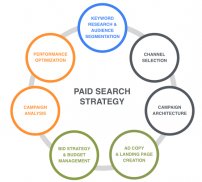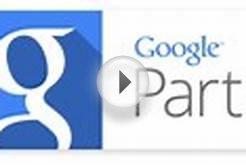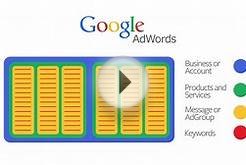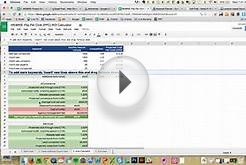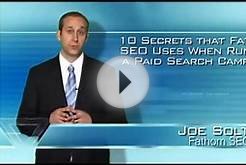Improve your Paid search marketing (PPC) with our hub page
Use our hub pages as a reference to get up-to-speed on all the main digital marketing techniques. They will help you quickly understand how to make the most of the technique through definitions and recommendations on our member resources and blog articles covering strategy, best practices and the latest statistics.
Paid search marketing opportunities includes Pay Per Click Ads via Google and Bing plus ads on the display network - a third of Google's revenue. The cost of pay search can be high, so we discuss how to make sure you're getting the most value from PPC by maximising your Google Quality Score.
Paid search marketing (PPC) success factors
The main disadvantages of paid search that need to be managed for success are:
- 1. Competition. Since Pay Per Click has become popular due to its effectiveness, it is competitive and because it is based on competitive bids it can get expensive. CPC/bid inflation has led to some companies reducing PPC activity. Some companies may get involved in bidding wars that drive bids up to an unacceptable-level “some phrases such as 'life insurance' may exceed £10 per click.
- 2. Higher costs than other media. If SEO is effective it will almost always deliver a lower CPC.
- 3. Favours larger brands. For companies with a lower budget or a narrower range of products on which to increase lifetime value it may be not possible to compete. In the past large players have got deals on their media spend through their agencies through, for example, Google Best Practice Funding.
- 4. Complexity of managing large campaigns. PPC is deceptively simple to setup. But to compete effectively, particularly for a large campaign, requires knowledge of best practice which changes as Google and other engines introduce new facilities - see the official update blogs from the search networks to gain an idea.
- 5. Limited reach. Not all searchers will see your ads, since the majority scan and click on the natural listings. Your ad will only reach those who are proactively looking for a product or service, but not those who are unaware of a need. Here display advertising can be used, but the paid search content networks can help here.
- 6. Click fraud. Common in some sectors where competitors or advertisers click on ads when there is no intention to buy.
Paid search marketing (PPC) definition
Although many searchers prefer to click on the natural listings, sufficient numbers do click on the paid listings (typically around a quarter or a third of all clicks). So with careful control, Adwords can drive quality traffic for which you get a good return.
Although many searchers prefer to click on the natural listings, sufficient numbers do click on the paid listings (typically around a quarter or a third of all clicks). So they can drive traffic.
In the UK, Adwords accounts for around 60% of all paid media spend, so it clearly works for many companies.

